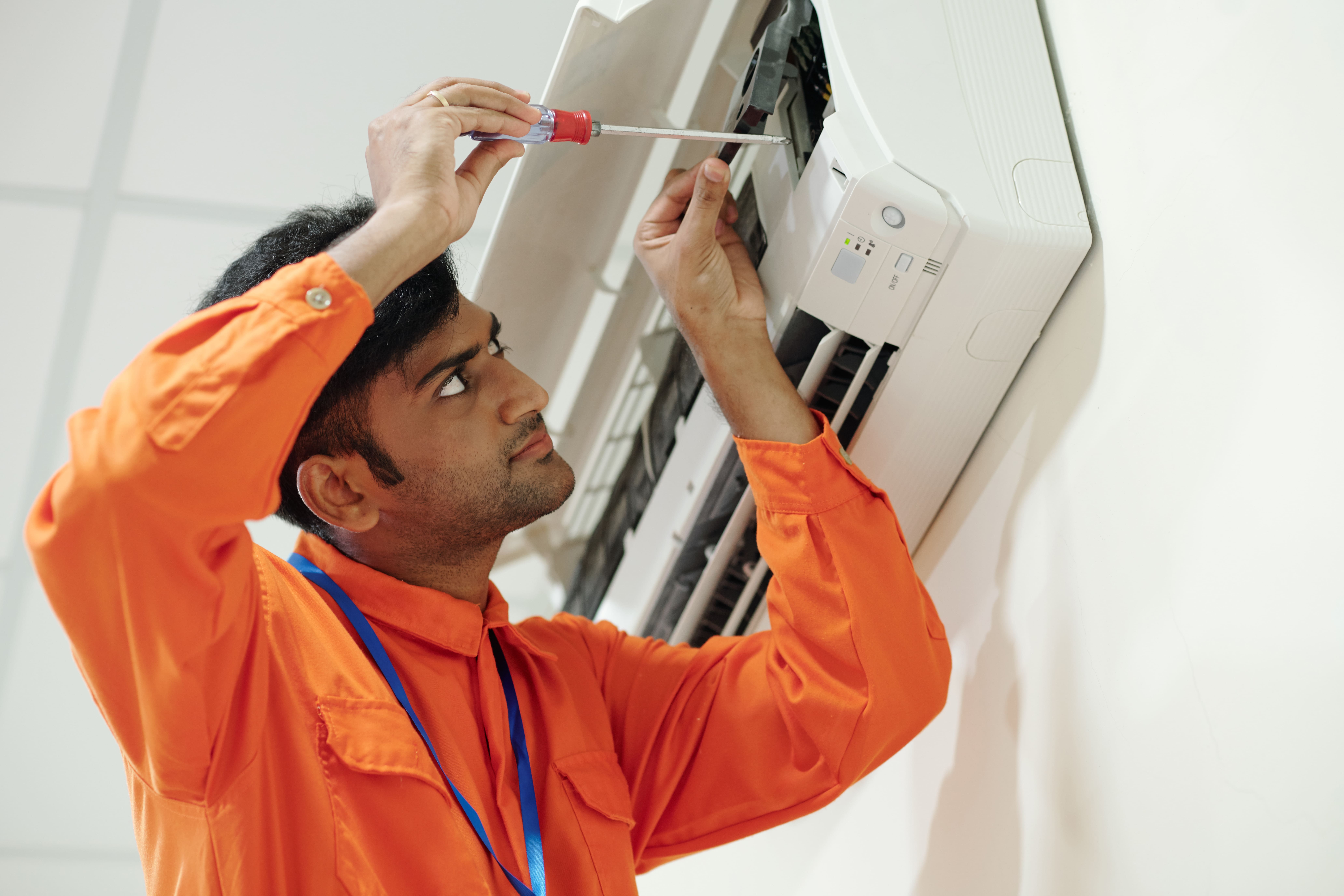TIPS TO AVOID AC FIRE HAZARDS
A recent chilling incident where a split air conditioner detonated within an apartment in Noida, leading to a fire, became the talk of the town. Fortunately, the blaze was contained in one room, and no injuries were reported. However, this incident throws the spotlight on the importance of maintenance and safety of air conditioners. Although ACs can be a major relief during the heat, they can become hazardous if not cared for properly. In order to prevent such dangerous mishaps, we bring you a few safety measures and guidance every owner should consider.
The Importance of Safe Split AC Usage
Ensuring the safe operation of split air conditioners is crucial for all users. Regular checks and preventive measures are necessary to avoid dangerous situations like AC blasts. By adopting these practices, users can stay cool without compromising safety.

AC Fire Incidents
This summer, high temperatures have led to increased split AC usage, putting more strain on the machines. Improper installation or usage of split ACs can seriously threaten your home and family. Incidents of split AC blasts and fires have been reported, particularly in areas with temperatures reaching around 50 degrees Celsius.
Reasons for Split AC Blasts
Overheating Due to Continuous Operation
Overheating is a primary cause of split AC blasts. Continuous usage of ACs puts immense pressure on the compressor, causing it to work harder and longer. This can lead to overheating, potentially resulting in fires or explosions.
To prevent overheating, use your split AC for 2-3 hours at a time, then switch it off to allow the compressor to rest. Using timers or smart AC controllers can help manage usage efficiently.
How can I tell if my split AC is overheating?
Here are the key signs that your split AC is overheating:
- Unusual noises like buzzing, clanking, or grinding coming from the unit
- The circuit breaker trips frequently
- Weak airflow or warm air blowing from the vents
- Excessive heat around the exterior of the unit that is hot to the touch
- A slight burning or smoky smell coming from the vents
- Reduced cooling performance and spiking electricity bills
Refrigerant Gas Leaks
Leakage of refrigerant gas, an essential component for cooling in split ACs, can disrupt the cooling process and lead to serious safety hazards. Leaking refrigerant gas can cause improper cooling, forcing the AC unit to work harder and overheat, potentially leading to a fire or explosion.
Regular maintenance and timely technician inspections are crucial. If signs of refrigerant leakage are noticed, address them promptly to avoid any fire risks. Monitor for unusual hissing sounds or declining cooling performance, as these may indicate a gas leak or a clogged filter.
What are the signs of a refrigerant gas leak in an AC?
The key signs of a refrigerant gas leak in an air conditioner are:
- Weak or reduced airflow from the AC vents
- The AC is blowing warm air instead of cold air
- Hissing, bubbling, or gurgling sounds coming from the indoor unit
- Excessive ice buildup on the evaporator coils or refrigerant lines
- Unexpectedly high electricity bills without a change in usage
Refrigerant leaks can disrupt the AC’s cooling process, causing it to work harder and less efficiently. The refrigerant, also called Freon, is essential for the AC’s heat exchange process. Leaks in the refrigerant lines or components can allow this gas to escape, compromising the AC’s ability to effectively cool the air. Addressing refrigerant leaks promptly is crucial to maintaining the AC’s performance and safety.
Voltage Fluctuations
Frequent voltage fluctuations can adversely affect split AC functionality. Sudden spikes or drops in voltage can damage the compressor and other electrical components, increasing the risk of a blast.
To protect your machine, install a voltage stabiliser or choose an AC with an inverter or dual inverter, which helps maintain consistent voltage levels. Using a surge protector can also safeguard your AC against electrical surges that could damage the cooling system and lead to a blast.
Also Read: 7 REFRESHING HEALTHY DRINKS TO BEAT THE HEAT WAVE
Safe Practices for Split AC Usage

Regular Maintenance
Schedule regular servicing of your split AC to ensure safe and efficient operation. A well-maintained air conditioner is less likely to encounter dangerous incidents.
Avoid Overloading Electrical Circuits
Connect your split AC to a dedicated electrical circuit to avoid overloading. Overloaded circuits may cause electrical fires, especially if multiple high-power appliances are running simultaneously.
Proper Installation
Ensure your split AC is installed correctly by a professional. Improper installation can lead to inefficiencies in the machine and result in safety hazards. Make sure the unit is securely mounted, and all electrical connections are properly insulated and grounded.
How often should I have my split AC serviced?
The key is to follow the manufacturer’s recommendations and service your split AC at least annually, or more frequently if usage and environmental conditions warrant it. Regular professional maintenance is crucial for ensuring the safe, efficient, and reliable operation of your split air conditioning system.
Here are the key points on how often you should have your split AC serviced:
- Most experts recommend servicing split ACs at least once a year, or every 12-18 months.
- If you use your split AC frequently or live in an area with high dust, pollen, or humidity, it may need servicing twice a year.
- Regular servicing helps maintain the AC’s efficiency, extend its lifespan, and prevent larger issues from developing. It includes tasks like cleaning filters, checking refrigerant levels, and inspecting electrical components.
- Signs your split AC needs immediate servicing include reduced airflow, hot air output, higher energy bills, moisture leaks, and unusual noises or smells.
By following these safe practices and preventive measures, users can enjoy the benefits of split ACs while minimising the risks of dangerous incidents like blasts and fires.